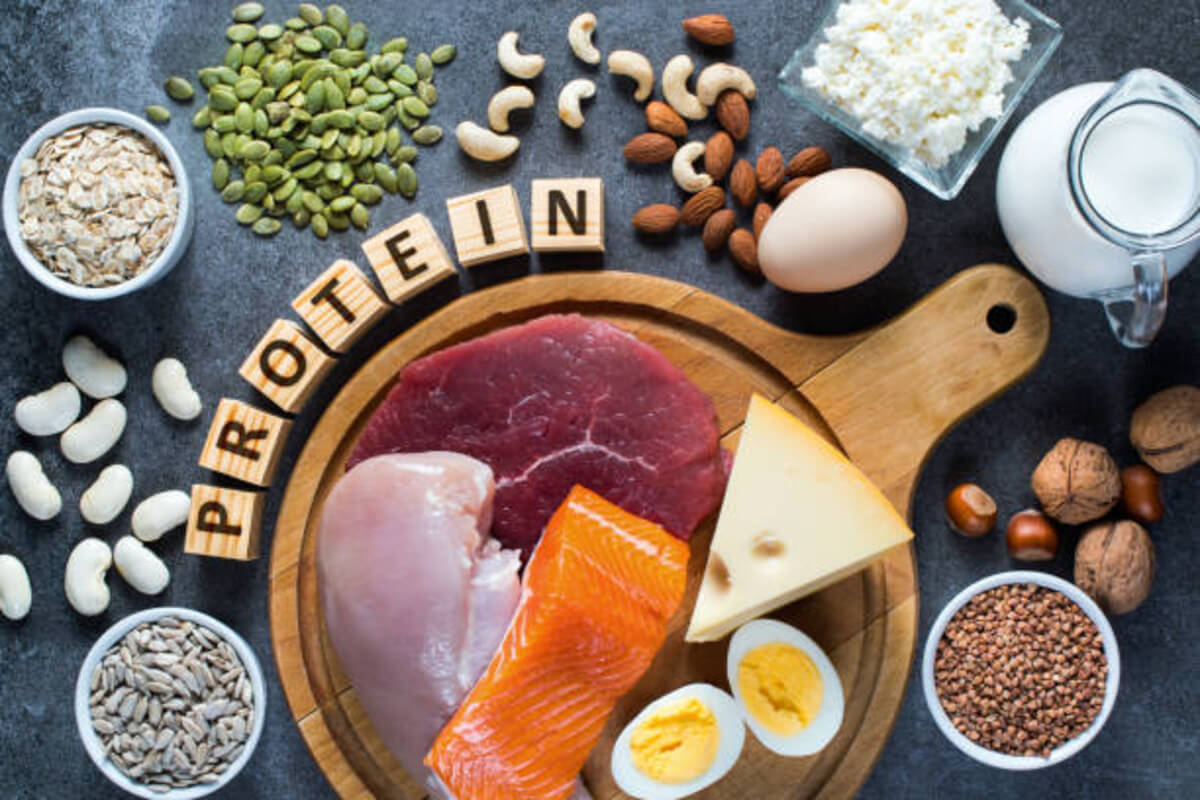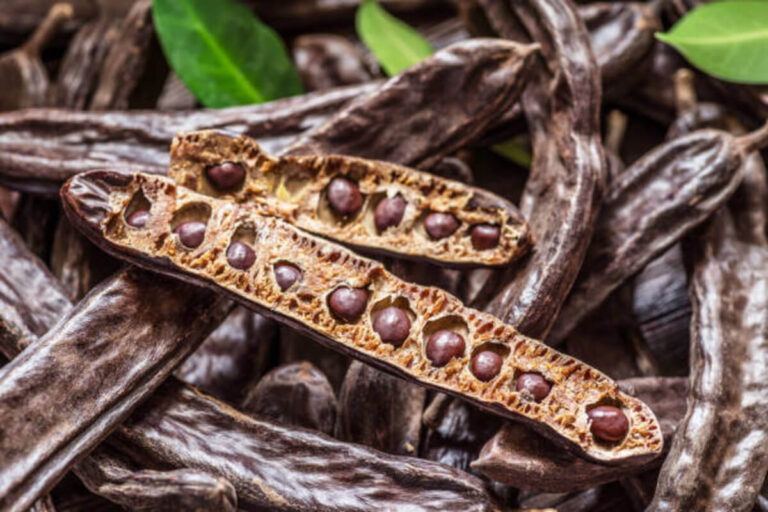The Top 10 Protein-Rich Foods to Include in Your Nigerian Diet
Do you want to increase the protein in your Nigerian diet? There is no need to look any further! In this post, we will look at the top ten protein-rich foods that you may incorporate into your daily meals to improve your nutrition and attain your health objectives.
Protein is an essential nutrient that plays a critical part in developing and repairing tissues, supporting a healthy immune system, and keeping a strong and lean physique, whether you are a fitness fanatic or simply looking to improve your general well-being. Nigeria, with its diverse culinary past, has a wide range of delicious and nutritious protein sources that can be easily incorporated into your meals.
Advertisement
We’ll walk you through the best protein-rich foods, from plant-based options like beans and lentils to animal-based options like fish and eggs, that will not only delight your taste buds but also fuel your health. Prepare to enter a whole new realm of protein-packed delight that will elevate your Nigerian diet to new heights!
Also, check out Food Business in Nigeria.
Protein’s Importance in the Nigerian Diet
For good reason, protein is often referred to as the “building block of life.” It is a necessary nutrient for the growth, healing, and maintenance of tissues in the body. Protein is essential in the Nigerian diet for general health and well-being. It increases muscle growth, aids in weight management, and improves the normal functioning of the immunological system.
Advertisement
Furthermore, protein is required for the creation of enzymes, hormones, and antibodies, all of which are required for numerous physiological functions. By including protein-rich foods in your diet, you can guarantee that you are getting enough of this important nutrient and reaping its many advantages.
Protein is present in both plant and animal sources, making it available to those with a variety of dietary preferences. Whether you are a vegetarian, vegan, or meat eater, there are lots of protein sources available to you. In the sections that follow, we will look at the top 10 protein-rich foods that are regularly consumed in Nigeria and offer you nutritional profiles, recipes, and meal ideas to help you incorporate them into your daily meals.
The Advantages of Consuming Protein-Rich Foods
Incorporating protein-rich foods into your diet provides numerous benefits to your general health and well-being. Let’s take a deeper look at some of the main benefits:
- Muscle Growth and Repair: Protein is required for muscle growth and repair in the body. When you eat protein-rich foods, your body breaks it down into amino acids, which are then used to repair damaged tissues and grow new muscle fibers. This is especially crucial for people who exercise often or do strength training since they require more protein to maintain muscle growth and recovery.
- Weight Management: Protein is more satiating than carbohydrates or fats, which means it keeps you feeling fuller for longer. By including protein-rich foods in your meals, you can prevent cravings and overeating, which can help with weight management and weight loss objectives in the long run. Furthermore, protein has a larger thermic effect, which indicates that your body burns more calories during protein digestion and absorption than carbohydrates or fats.
- Blood Sugar Control: Including protein in your meals can assist in regulating blood sugar levels, minimizing energy spikes and crashes. Protein, when consumed with carbohydrates, inhibits the absorption of glucose into the bloodstream, resulting in a more consistent and continuous release of energy. This is especially important for people who have diabetes or want to maintain consistent energy levels throughout the day.
- Bone Health: Protein is essential not just for muscular health, but also for keeping strong and healthy bones. It aids in the formation of collagen, the main structural protein found in bones. Protein consumption can help prevent bone loss and lower the incidence of osteoporosis, especially in elderly persons.
- Immune Function: Protein is required for the immune system to operate properly. It aids in the creation of antibodies, which are proteins that aid in the fight against infections and disorders. Incorporating protein-rich foods into your diet can help support a healthy immune response and protect you from sickness.
Protein Needs of Different Age Groups
Protein requirements differ depending on age, gender, weight, and amount of activity. Protein’s Recommended Dietary Allowance (RDA) is generally dependent on body weight. The table below offers a rough guideline for protein intake based on age:
- Infants – 1.5 to 2.2g per kg of body weight
- Children – 0.95 to 1.5g per kg of body weight
- Adolescents – 0.85 to 1.0g per kg of body weight
- Adults – 0.8g per kg of body weight
- Pregnant Women – 1.1g per kg of body weight
- Lactating Mothers – 1.3g per kg of body weight
It is crucial to note that these values are only guidelines; individual protein requirements may differ. Athletes, pregnant women, and those recovering from accidents or illnesses may need to consume more protein. Consultation with a healthcare expert or a qualified dietitian can assist in determining your individual protein requirements and ensuring that you are reaching your nutritional needs.
Also, check out Food Manufacturing Companies in Nigeria.
Nigerian Cuisine’s Top 10 Protein-Rich Dishes
Nigerian cuisine has a diverse range of protein-rich foods that can be easily incorporated into your everyday diet. There is something for everyone, whether you prefer plant-based or animal-based solutions. Let’s look at the top ten protein-rich Nigerian foods:
- Beans: Beans are a common ingredient in Nigerian cuisine and are high in protein, fiber, and important elements. They are an excellent plant-based protein source that may be prepared in a variety of ways. Beans provide unlimited choices for delicious and nutritious meals, from the traditional “akara” (bean cakes) to “moi moi” (steamed bean pudding). A 100-gram serving of cooked beans has about 9 grams of protein.
- Eggs: Eggs are a wonderful source of high-quality protein that can be consumed at any time of day. Eggs are a quick and healthful option whether boiled, scrambled, or in an omelet. A big egg has around 6 grams of protein.
- Fish: Fish is a high-protein cuisine that is popular in Nigeria due to the country’s plentiful coastline and freshwater sources. It’s not only high in protein, but it’s also high in omega-3 fatty acids, which are good for your heart. In Nigeria, prominent fish species include mackerel, catfish, tilapia, and sardines. Depending on the type of fish, a 100-gram serving of fish can contain up to 20 grams of protein.
- Chicken: Chicken is a popular lean protein source that is commonly used in Nigerian cuisine. It can be prepared in a variety of methods, such as grilling, baking, or stewing. Chicken breast, in particular, is high in protein and low in fat. The protein content in a 100-gram portion of skinless chicken breast is around 31 grams.
- Beef: Beef is yet another protein-rich dish popular in Nigeria. It contains vital amino acids and key elements such as iron, zinc, and vitamin B12. Lean cuts of beef, such as sirloin or tenderloin, contain less fat and more protein. A 100-gram plate of lean beef contains about 26 grams of protein.
- Soybeans: Soybeans are a very healthy and diverse plant-based protein source. They can be used to make soy milk, tofu, or tempeh, which are popular dairy and meat substitutes. Soybeans are also used to make a variety of soy-based foods such as soy flour and soy sauce. Cooked soybeans include roughly 17 grams of protein per 100 grams.
- Groundnuts: Peanuts, also known as groundnuts in Nigeria, are a popular snack high in protein, healthy fats, and antioxidants. They can be cooked, roasted, or mashed into peanut butter. Peanuts can also be used as a garnish or as an ingredient in a variety of Nigerian recipes. A 100-gram serving of peanuts has about 25 grams of protein.
- Milk: Milk is a complete protein source that provides all of the key amino acids that the body needs. It contains calcium, vitamin D, and other essential elements. Milk is commonly consumed as a beverage or utilized in the creation of numerous foods and sweets in Nigeria. A cup of milk (240 mL) has roughly 8 grams of protein.
- Greek yogurt: Yogurt is a fermented dairy product that is high in protein and high in probiotics, which are good for gut health. It can be eaten on its own or as a garnish or ingredient in smoothies, salads, or desserts. A 170-gram serving of yogurt has about 17 grams of protein.
- Lentils: Lentils are a high-protein, fiber-rich legume that is also high in vitamins and minerals. They can be prepared and eaten as soups, stews, or salads. Lentils are also used to produce “gbegiri,” a thick soup made from blended beans and spices that is famous in Nigeria. A 100-gram serving of cooked lentils has around 9 grams of protein.
Each Protein-Rich Food’s Nutritional Profile
The nutritional characteristics of the top ten protein-rich foods in Nigerian cuisine are as follows:
Cooked beans (100g):
- 140 calories
- 9g protein
- 27g carbohydrate
- 7g fiber
- Fat: 0.5g
1 big egg
- 70 calories
- 6g protein
- 0.6g carbohydrate
- Fat: 5g
Cooked fish (100g)
- Calories: 120-200 (depending on fish variety)
- 20g protein
- Fat: 5-10g
- Omega-3 fatty acids: the amount varies.
Skinless chicken breast (100g)
- 31g protein
- 165 calories
- Fat: 3.6g
Lean Beef (100g)
- 250 calories
- 26g protein
- Fat: 17g
Soybeans (cooked, 100g)
- 173 calories
- 17g protein
- 9g Carbohydrates
- 6g fiber
- Fat: 9g
Roasted peanuts (100g)
- 567 calories
- 25g protein
- 16g carbohydrate
- 8g fiber
- Fat: 49g
Milk (1 cup, 240ml)
- 103 calories
- 8g protein
- 12g carbohydrate
- Fat: 2.4g
Yogurt (170 g)
- 150 calories
- 17g protein
- 8g carbohydrate
- Fat: 8g
Lentils (cooked, 100g)
- 116 calories
- 9g protein
- 20g carbohydrates
- 8g fiber
- Fat: 0.4g
Recipes and Meal Plans Using These Protein-Rich Foods
Now that we’ve covered the top ten protein-rich items in Nigerian cuisine, let’s look at some tasty dishes and meal ideas to help you include them in your daily meals:
Porridge with Beans
Ingredients:
- 1 cup of black beans
- 1 chopped onion
- 2 chopped red bell peppers
- 2 teaspoons palm oil
- 1 deboned smoked salmon
- 1 stock cube
- Salt and pepper to taste
Procedure:
- Soak the beans overnight and then drain.
- Fill a big pot halfway with water and add the beans.
- Bring to a boil and simmer until the potatoes are cooked.
- Heat the palm oil in a separate skillet and sauté the onions and bell peppers until tender.
- To the cooked beans, add the sautéed combination, smoked fish, stock cube, salt, and pepper.
- Cook for another 10 minutes.
- Serve immediately and enjoy!
Fried Egg Rice
Ingredients:
- 2 cups cooked rice
- 3 beaten eggs
- 1 sliced onion
- 1 diced carrot
- 1 cup peas + 2 teaspoons vegetable oil
- To taste soy sauce – Salt and pepper
Procedure:
- In a wok or big saucepan, heat the vegetable oil.
- Saute the chopped onions till golden brown.
- Cook until the carrots and peas are soft.
- Move the vegetables to one side of the pan and add the beaten eggs. Scramble the eggs until they are done.
- Stir-fry the cooked rice for a few minutes, making sure it is well covered with the egg and vegetable combination.
- Season to taste with soy sauce, salt, and pepper.
- Serve immediately and enjoy!
Plantain with Grilled Fish
Ingredients:
- 2 fillets of fish (mackerel or tilapia) – 2 ripe plantains
- 1 paprika teaspoon
- 1 tablespoon garlic powder
- 1 tablespoon onion powder
- Season with salt and pepper to taste
Procedure:
- Brushing oil made from vegetable oil
- Preheat the grill to medium-high temperature.
- Combine the paprika, garlic powder, onion powder, salt, and pepper in a small mixing bowl.
- Season the fish fillets on both sides with the spice mixture.
- To prevent sticking, brush the grill grates with vegetable oil.
- Grill the fish fillets for around 10 minutes.
Before you go, check out How to Make Egg Sauce for Yam.







2 Comments
Comments are closed.